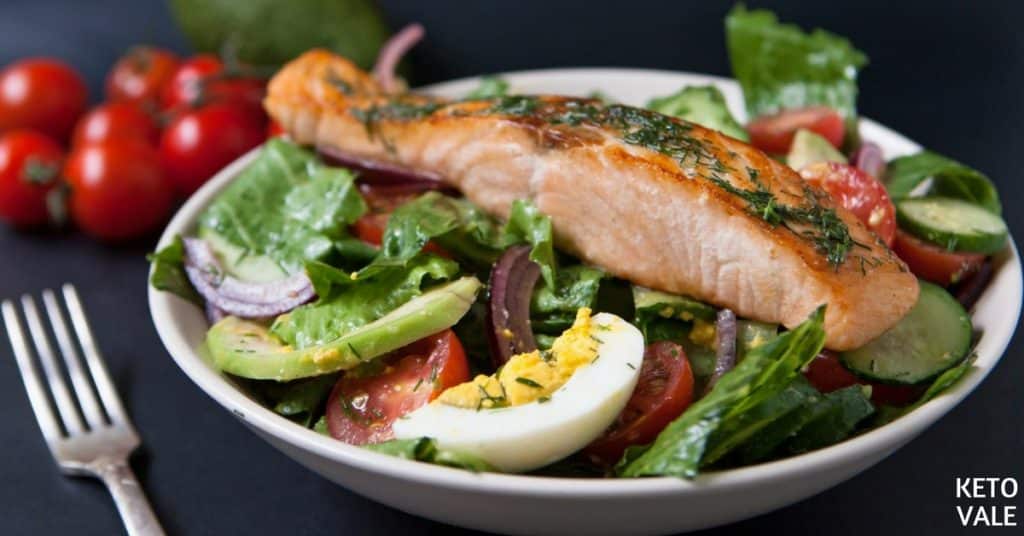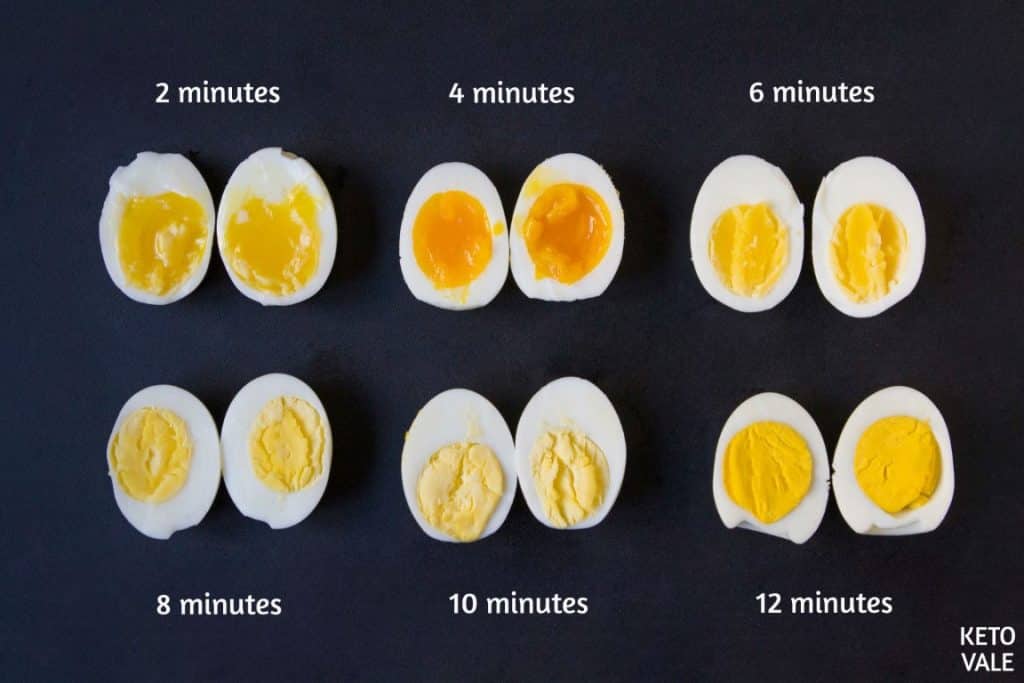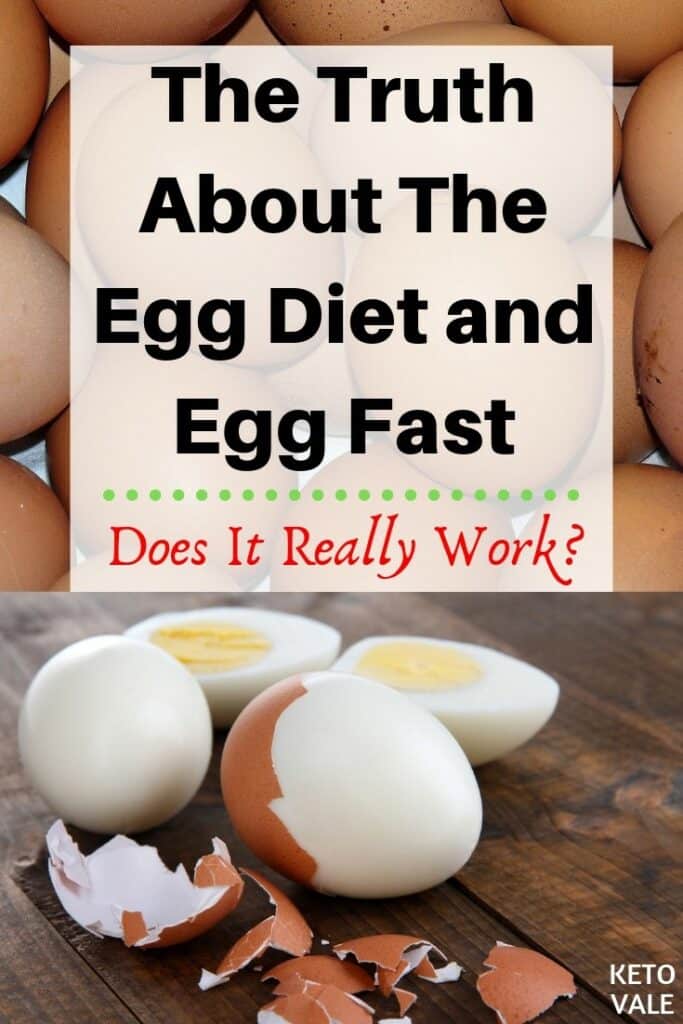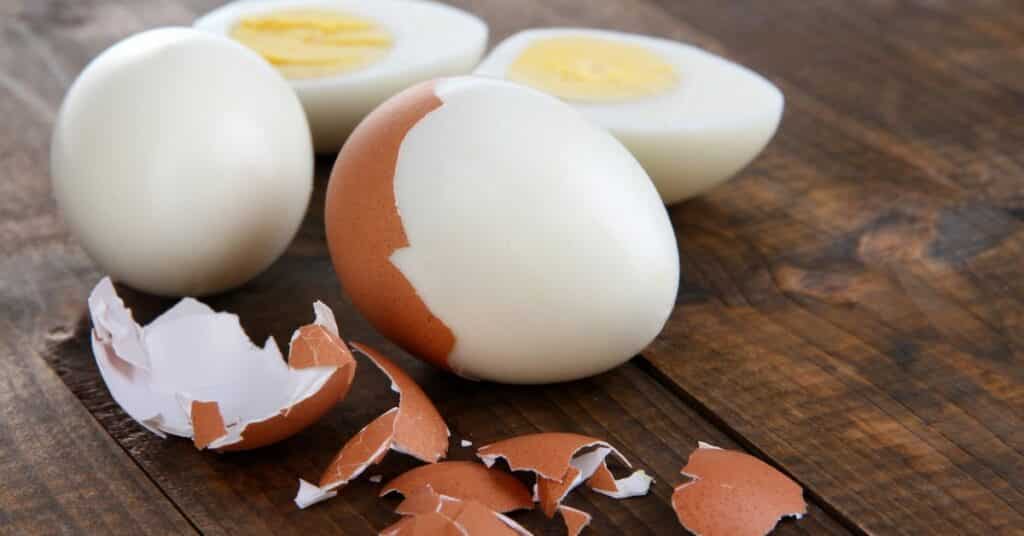If you have spent some time reading articles about fitness, nutrition, and dieting, you might have encountered the term “egg diet”.
Although an egg diet sounds a bit bizarre, it’s not actually limited to eating eggs only. Instead, you’re making them one of your protein sources of choice for a period of time, typically 2 weeks.
Only in the most extreme version of the diet you’d be eating eggs only (and we don’t recommend such a restrictive approach to dieting).
So, what is the egg diet exactly?
How do you do it? For how long?
Is it safe and healthy?
Is it effective?
We’ve researched the matter in detail in order to be able to give you the answer to those questions, and more in this article. Let’s dive in!
What Is The Egg Diet?
There isn’t one single egg diet, instead, there are a few different egg diets out there, which have different rules. We’ll look into each one of them.
The classic egg diet is a rather simple and straightforward 14-days diet where you prioritize eggs and a few other sources of lean protein, add a few low-carb veggies (plus, eventually, some citrus fruits), and eat three times a day without snacking between meals.

Here’s what you can have on it:
- Eggs
- Lean protein such as chicken breast, turkey, tuna and other lean fish
- Low-carb vegetables, such as broccoli, cauliflower, spinach, lettuce, kale, cabbage, carrots, etc.
- In some versions of the diet, some fruits are allowed in moderation, such as apples, berries or citrus fruits.
- Zero-calorie drinks only, such as water, sparkling water, unsweetened tea, black coffee. Diet soda is best avoided but you could still consume a can or two.
And that’s it. Everything else is limited. No bread, pasta, junk food, high-carb vegetables, nuts, dairy, alcohol, soda, juices, desserts, and so on.
On the egg diet, you should build your meals around a protein source – eggs or one of the other options – add vegetables as a side dish and eventually have a small serving of fruits for dessert.

Your breakfast should be an egg-based dish, while for lunch or dinner you could use another protein.
As you can see, the diet resembles a ketogenic diet somewhat, except that it’s more limited and you only do it for 2 weeks, without necessarily tracking macros.
The egg and grapefruit diet is a variation of the above diet. Again, it’s a 14-days diet based on eggs, lean protein and low-carb veggies, and you also eat half a grapefruit at each meal (other fruits aren’t allowed).
What is an Egg Fast?
In the most extreme version of the egg diet, you’d be eating nothing but hard-boiled eggs for a week or two.

Sometimes the maximum amount of eggs you can eat is capped at 6, sometimes it’s unlimited (but you’ll quickly get fed up with eggs and won’t want to eat a lot of them anyway).
Six large eggs provide you with only 468 calories, and that’s not anywhere near enough sustainable.
You’ll likely feel extremely tired and weak by the second or third day of it, and lose lots of muscle mass if you persist.
Even if you eat 15 large eggs a day, you’d still be at 1170 calories (75 g fat, 90 g protein and 9 g net carbs), which, except for people who have a smaller frame and are already quite lean, is likely to be way too low, even if the goal is weight loss.
A ketogenic egg fast is another form of an egg diet that you might see mentioned from time to time, on keto websites and forums in particular.
This isn’t really a fast since you’d be eating food throughout its whole duration, which is from 3 to 5 days.
In fact, it’s a short-term diet intervention where you eat eggs, fats and cheese.
The rules are fairly simple:
- You eat a minimum of 6 whole eggs daily
- You eat 15 g of fat with each egg you eat
- You can have up to 28 g (1 oz) of hard cheese with each egg
- You eat an egg within 30 minutes of waking up and eat every 3 to 5 hours, even when you aren’t hungry (or don’t feel like eating any more eggs..); you stop eating 3 hours before bedtime.
For such a short duration (3 to 5 days), an egg fast shouldn’t be a problem for someone who is healthy.
Nevertheless, it just seems unnecessary, and not a well-rounded approach to food and dieting overall.
An egg fast will almost likely get you in the state of ketosis, but that can be achieved simply by following keto macros.
You don’t need to do an egg fast in the beginning of a keto diet (or at any point).
The egg fast diet has no fiber, so you might experience digestive issues, and it also doesn’t provide you with enough potassium, which is essential for keto.
Is The Egg Diet Safe and Healthy?
If you’re not doing an extreme version of the egg diet (i.e. one where you eat only eggs and nothing else), but a more balanced diet in which you’re simply getting some of your protein from eggs, it could be safe for a period of time.
If you’re eating other food, such as vegetables and other sources of protein, then you’ll be able to keep deficiencies at bay, at least for a while.
It’s not exactly optimal and it would be a bit of a stretch to call it “healthy”, but it likely won’t do any damage if you do it for the intended duration of 2 weeks.
The more extreme version of the egg diet, i.e. the one where you eat only eggs, is not healthy and we do not recommend it.
While it’s true that eggs are full of important micronutrients and that they are a good source of both protein and fat, there are some essential micronutrients that you won’t be getting from them.
A diet that consists only of eggs will put you at risk of developing nutritional deficiencies, losing muscle mass, and feeling extremely weak and tired.
It’s overall not a great idea and even if you’re looking to kickstart your weight loss, there are other healthier ways to do it.
On an egg-only diet, you won’t be getting any fiber, vitamin C and vitamin K, among other micronutrients. You’ll also be depriving yourself of niacin (vitamin B3) and of the necessary amount of manganese and potassium. These nutrients are all necessary for optimal health.
On top of that, it’d be very limited in calories, unless you’re eating upwards of 15 eggs a day. A very low-calorie diet isn’t a sustainable long-term solution.
A ketogenic egg fast, while not necessary, is very limited in its duration (3 to 5 days), so it’s unlikely to do any damage if you’re healthy. You’ll just get bored of eggs, and might not achieve much in terms of weight loss or improving your health.
Should You Try The Egg Diet?
It doesn’t seem to be an optimal choice and for three main reasons.
First of all, the extreme version of it, where you’re eating only eggs for some time, it’s simply not healthy and will likely result in nutrient deficiencies. It’s essentially a fad diet.
The other versions of the diet, where you have other protein sources, vegetables, and some fruits, are simply boring and too restricted, but not as dangerous.
Adding eggs to your usual diet? Sure, it’s a great idea! Eggs are very nutritious and most people tolerate them very well.
Using eggs as your main protein source? Not ideal, but can be sustained for a while.
Eating nothing but eggs for a given period of time? Not healthy by any means. Consider a different approach.
The second reason why an egg diet (both in its extreme and less extreme version) is not optimal is that it doesn’t teach you anything about nutrition and about the way your body functions.
Sure, you might lose a few pounds with it, but what happens once you’re no longer on an egg diet? You’ll most likely just gain them back. You cannot expect a band-aid solution to give you long term results.
If you’d like to change your body for good and make the changes stick, you need to re-evaluate your habits and adopt a healthy lifestyle.
You need to learn how to make good choices in regards to the food you’re eating, and you also need to know why these are good and not just stick to some incredibly restrictive meal plan for a week or two and then gradually undo your progress when you go back to your old habits.
This is why we’re advocating a more balanced approach, where you spend time learning about the different macro and micronutrients, the way food affects your body, your energy needs and the things you need to do in order to lose fat.
The last reason is that you might develop an egg aversion or simply get extremely bored with eggs.
After an egg diet you will likely not want to eat any eggs for a while, and why would you want to develop an aversion for such an otherwise healthy and nutritious food?
Have some eggs as a part of a healthy diet, and you’ll be able to enjoy all of their benefits in the long run.
Can You Lose Weight With the Egg Diet?
You could lose a few pounds with an egg diet or with most other diets out there, for that matter.
However, given that it’s not a sustainable long-term solution, once you go back to your previous eating habits, you’ll likely gain them back.
Additionally, some of the weight you lose will simply be water weight, due to the restriction of carbohydrates.
Something very similar happens when you switch from a high-carb diet to a keto or a low-carb diet.
On a high-carb diet, some of the carbs you eat will be stored as energy in your body in the form of glycogen.
Glycogen is stored in your liver and muscles, and each molecule of it is bound to 3 molecules of water, so once you use up some or most of it, you’ll also lose water weight.
So while it’s possible that you lose plenty of weight in the first week of an egg diet, it’s not actually fat that you’re losing, and once you increase your carbs, you’ll see the scale go back up.
Any specific claims of being able to lose an X amount of weight (10 pounds, 20 pounds or whatever) for 2 weeks of an egg diet, are just that – claims.
They aren’t based on any actual research. Be wary of anything that promises you a quick and easy solution and a rapid weight loss of several pounds a week – in most cases, it won’t be effective, sustainable or healthy.
The Egg Diet Vs. Keto
The egg diet in its classical form is somewhat similar to keto, as far as the carb restriction is concerned.
Although on an egg diet you’re not tracking macros, with lean protein, eggs and low-carb veggies you’re likely to be around 30-40 g of net carbs daily, and that’s enough for many people to achieve ketosis. If you’re adding fruit, your carbs will naturally go up.
The egg diet also doesn’t feature any sources of healthy fats, except for eggs, which can be a problem for longer periods of time, and essentially makes the diet less sustainable and more difficult to follow than keto.
Eggs do contain fat, so you’ll still be able to maintain normal hormonal function if you eat at least 6-7 eggs per day, but it’s not an optimal choice.
The extreme version of the egg diet is much more restrictive than keto, and also, for that reason, much less healthy, as you won’t be getting some essential micronutrients from your food including potassium.
You’ll likely be in ketosis but might experience a particularly bad version of the keto flu.
An egg fast is often done by people who otherwise follow a ketogenic diet.
Although there isn’t a particular reason to do it, for a limited period of time (3-5 days) it can be done instead of your regular keto diet without any major issues (except for getting low on potassium).
The keto diet is one of the many solutions out there, but it’s definitely not the only one, and not necessarily the best one for everyone.
There are plenty of other diets that will give you good results such as low-carb, paleo, primal, a macro-based approach, etc… as long as you do them in a sensible manner and use them as a learning opportunity, and as long as you maintain a caloric deficit.
The egg diet is definitely not an optimal long-term solution, as it just gives you a quick fix for a problem that is much more complex than that.
Getting enough sleep and increasing your activity levels will also definitely help with weight loss and with health in general.
Want to lose weight with keto? Read our keto diet for weight loss guide!
Our Conclusion
Regarding the classic egg diet, where you also eat other protein sources and vegetables, although bland and boring, it isn’t dangerous as such, it’s just not a great strategy.
It could be effective in the short term, but won’t teach you anything about how to eat better and how to manage your weight successfully.
Some of the weight you’ll lose with it will be water, so you’ll gain it back once you’re off the diet. Some fat loss is definitely possible, but if you don’t do anything to change your habits and lifestyle, it will be temporary.
We do not recommend an egg-only diet, because it is likely to lead to micronutrient deficiencies and with it you’re putting your health at risk. Restricting everything but a single food can be physically and psychologically damaging and is simply not worth the risk.
There aren’t any shortcuts to weight loss. It’s a slow and steady process when done in a healthy manner. The main principle behind it is very simple: in order to lose fat, you need to limit your calorie consumption and spend more energy than what you’re getting from food.
In order to make changes that stick, you also need to change your habits and stop doing the things that made you gain weight.
Of course, changing your diet is essential for weight loss, however, “diet” here is meant simply as “the food you eat”, not as a short-term diet that you follow and then forget about.
Ditch the mentality that going on a short-term diet will help you solve the issue because the issue is not the 10-20-30 extra pounds that you’re carrying, the issue lies in whatever made you gain them in the first place. Address this and you’ll be much better off than going on a 2-week diet.
Enjoy this post? Share to save for later!

Photo credit: belchonock/Depositphotos.com







